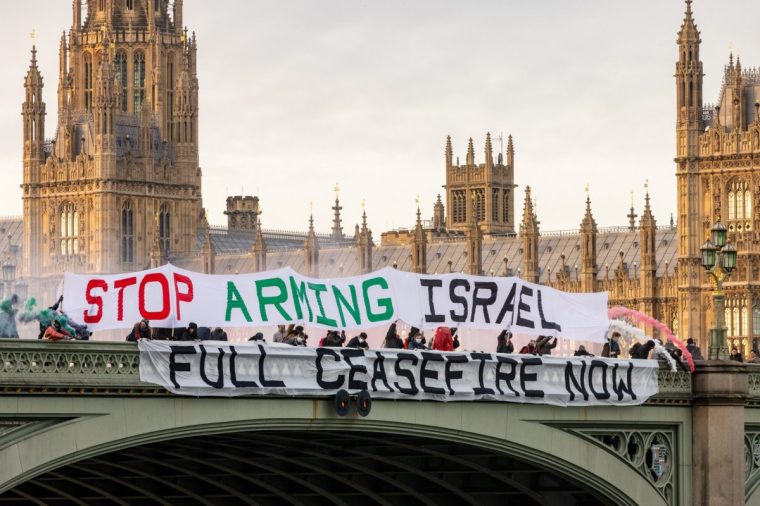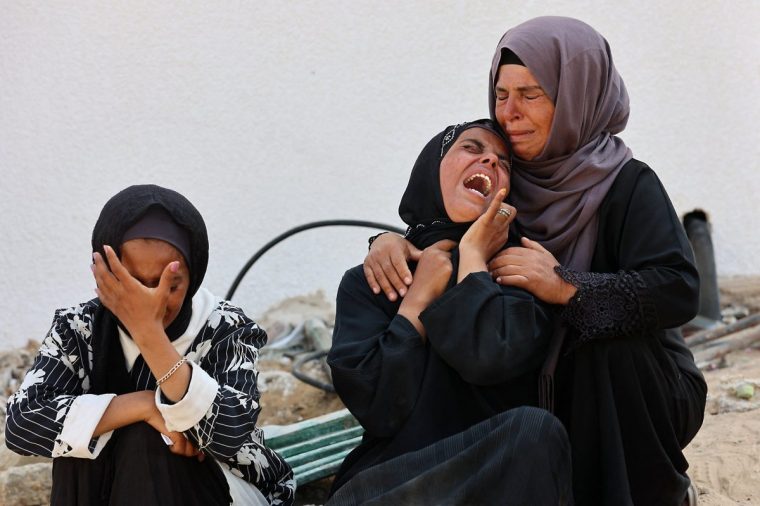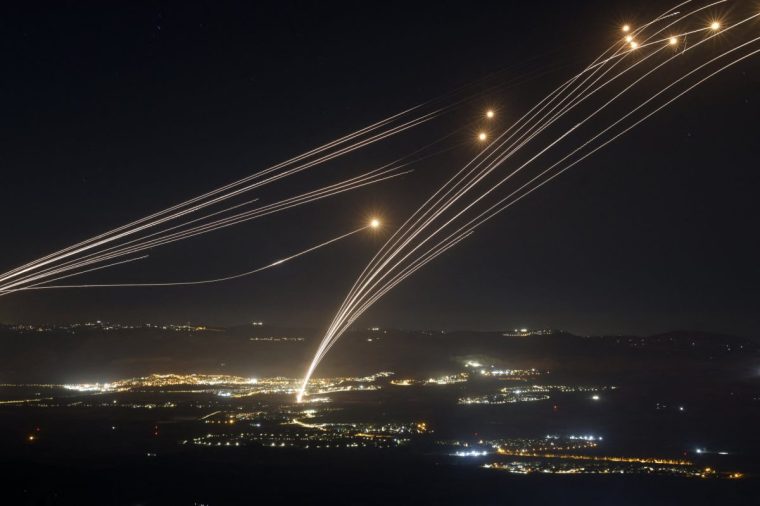A Foreign Office review in September found ‘a clear risk’ that UK arms might be used to ‘commit or facilitate a serious violation’ of international humanitarian law
The UK Government’s relationship with Israel is under greater strain than ever. It steadfastly supports the country’s right to self-defence against hostile actors like Iran and proxies such as Hezbollah, but has been increasing pressure on Israel to agree a ceasefire in Gaza.
Having previously banned exports of military equipment that could be used by Israel in Gaza, Sir Keir Starmer threatened to take “further concrete actions” if Israel did not cease its latest “wholly disproportionate” military escalation, in a joint statement with the French and Canadian leaders last month.
Now, the UK has joined several nations in announcing sanctions on two far-right ministers in Benjamin Netanyahu’s government over “repeated incitements of violence against Palestinian communities” in the occupied West Bank. Israel called this move “outrageous”.
Pro-Palestinian campaigners argue the UK is still not doing enough to end the war in Gaza. They remain angry that the Government allows any military sales at all to Israel. Figures released last month showed that licensed arms exports to Israel increased from less than £30,000 in the first quarter of 2024 to £127.6m in the final quarter.
This comes as Israel launched a series of strikes against Iran’s nuclear facilities and top officials on Friday morning. Netanyahu said the operation would continue for several days. The International Atomic Energy Agency has also announced that Iran is failing to meet its nuclear non-proliferation commitments, for the first time in 20 years.
So how is the UK continuing to support and supply the Israeli armed forces and its military industry, and what restrictions has it imposed?

How do the UK Armed Forces and intelligence agencies support Israel?
The UK has not taken part in any military action in Gaza. Unarmed UK spy aircraft have flown hundreds of missions near Gaza from an RAF base in Cyprus since hostilities broke out in 2023. But the Government said last month that “only information relating to hostage rescue will be passed to the relevant Israeli authorities,” rather than anything to aid military attacks.
RAF Typhoon jets shot down Iranian drones during the country’s mass airborne attack in April 2024 but are not equipped to track and shoot down ballistic missiles, which had to be destroyed by Israel’s ground-based air defence systems. Typhoons were airborne again during a second attack by Iran in October, but did not engage on that occasion.
However, experts say the UK may have still provided surveillance and tracking data. The UK shares intelligence with Israel on counterterrorism and security threats posed by Iran and Isis for example.
It is unclear whether or how the UK would support Israel in light of the strikes launched on Iranian sites. On Saturday, Iran threatened to attack UK bases if it acts in defence of Israel.

What military exports has the UK banned and why?
Arms exports from the UK to any other country must be granted licences by the Government to go ahead.
After nearly two years of growing concerns about how Israel was conducting its war on Hamas, a review by the Foreign Office under the newly elected Labour government concluded in September that there was “a clear risk that certain items, if exported, might be used to commit or facilitate a serious violation” of international humanitarian law.
The Foreign Office said it had been unable to judge whether or not “allegations regarding Israel’s conduct of hostilities” were accurate. Verifying claims was difficult in the warzone, it said, citing Israel’s failure to share information on “intended targets and anticipated civilian harm,” and “credible reports that Hamas embeds itself in a tightly concentrated civilian population and in civilian infrastructure”.
However, the assessment concluded that Israel was failing in its legal duty to allow “supplies essential to the survival of the population” into Gaza, and there were “credible claims of the mistreatment of detainees”. These factors “give cause for concern about its attitude and approach to the conduct of hostilities,” it said.
As a result, the Government suspended 30 licences “for items used in the current conflict in Gaza which go to the IDF”. These included components for drones, helicopters and Lockheed Martin’s F-16 fighter jets, plus targeting equipment.
It allowed about another 320 licences to continue on the basis that they did not have military use in Gaza, ranging from trainer aircraft to food-testing chemicals, telecoms and data equipment. However, many human rights campaigners were outraged that the UK’s continued participation in the international F-35 programme meant that British-made parts of the jets could still end up being supplied to Israel indirectly. The Government said that preventing this would have had a “significant effect on the global F-35 fleet with serious implications for international peace and security.”

So what exactly is the UK still selling to Israel?
After the export bans were imposed last year, Lammy claimed: “Much of what we send is defensive in nature. It is not what we describe routinely as arms.”
However, in a parliamentary debate on 2 June, the backbench Labour MP Steve Witherden and colleagues cited evidence from Israeli tax records suggesting that 8,630 munitions – classed within a category of “bombs, grenades, torpedoes, mines, missiles” – had been sold to Israel by British companies from September 2024 to March this year. The data, obtained by three Palestinian organisations, indicated that four shipments of 146 parts for “tanks and other armoured fighting vehicles” were also dispatched in that time.
Condemning the “vile” 7 October attack by Hamas, Witherden added: “All countries have the right to defend themselves, but no country has the right to commit war crimes.” He called on the UK to suspend all remaining arms exports to Israel, with his colleague Warinder Juss MP saying it was “completely conceivable that those weapons have been used to kill and maim children in Gaza”.
In response, the Trade minister Douglas Alexander reiterated that the export bans imposed in September 2024 means the UK is no longer “licensing military equipment provided directly to the IDF that could be used for military operations in Gaza.”
Alexander explained that items still being exported included “parts for air defence systems that defend Israel from acts such as the major aerial attack from Iran.” Israel used interceptor missiles – fired by its Iron Dome, David’s Sling, Arrow and Thaad networks – to stop two huge attacks by Iran last year but these have no offensive capability. Trainer aircraft would also be allowed.
He said that other exports were components for military equipment being made by Israeli companies but then being bought by other countries, not by Israel’s own forces. Of £142m-worth of military goods licenced for UK sale to Israel last year, 85 per cent were for items ultimately destined for a single Nato ally, according to Alexander.
It’s possible that these were components for six air-defence units being bought from Israel by Slovakia at a cost of $550m (£465m), for example. However, it’s impossible to check this, because details are not released by the Government.

What about the F-35 jets?
Israel continues to use F-35 jets, with 15 per cent of each aircraft originating from the UK. These fighters carry out “relentless attacks on Gaza, registering over 15,000 flight hours since October 2023, and dropping bombs that kill hundreds of people indiscriminately,” said Witherden.
Alexander maintained that the UK does not supply parts for F-35 jets directly to Israel, contrary to some recent reports. But the minister seemed to accept that British-made components – which form 15 per cent of the aircraft – still end up in the hands of the Israeli air force indirectly, because he said the UK could not realistically impose a veto on the US-led programme to build and maintain the fighter-bombers.
He explained: “Our exporters provide components for the F-35 aircraft to a global spares pool and the common production line for new aircraft, where they have no sight and no control over the specific ultimate end users for their exports.
“Put plainly, it is not possible to suspend licensing of F-35 components for use by one F-35 nation without ceasing supply to the entire global F-35 programme. It was therefore judged necessary by the Government to exclude F-35 components from the scope of the suspension.”
F-35s would also play a vital role for Israel in striking Iran or defending any attack from the country.
The High Court is holding a judicial review into whether this exemption is lawful, after the Palestinian human rights organisation Al-Haq took legal action against the Department for Business and Trade.
The group, which argues the UK has a duty to prevent genocide, stated: “The fact that those parts are now being transferred indirectly to Israel via the US, rather than provided directly to Israel, does not minimise the severity of their impact on the ground in Gaza.”
Government lawyers claim that although there is a “clear risk” that Israel “might commit a serious violation of international humanitarian law,” there is no “actual knowledge” that it will do so – arguing this is the legal boundary which would compel action if crossed.
A Government spokesperson said it has “at all times acted in a manner consistent with our legal obligations.” They said the F-35 programme could not be put at risk “due to its strategic role in Nato.”
The Israeli embassy in London was approached for comment.
